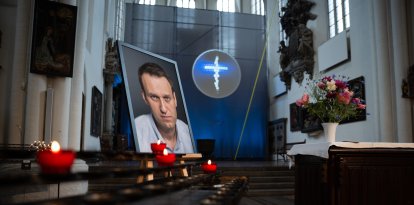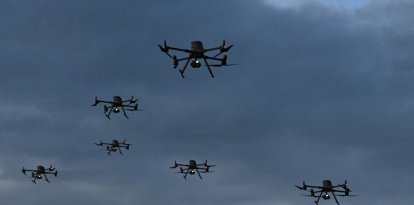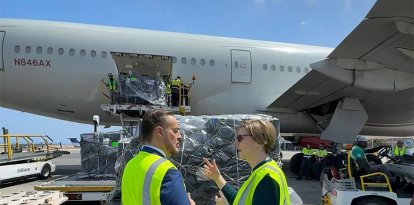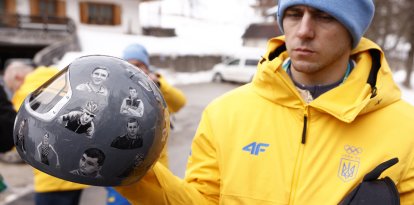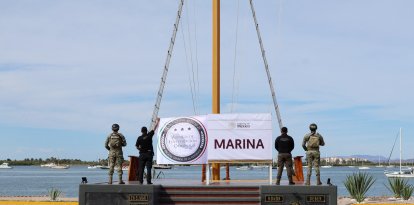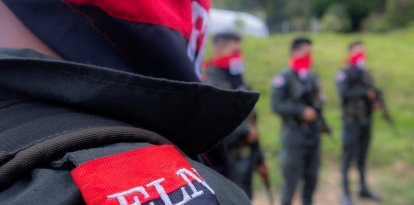What is Tren de Aragua? The Venezuelan criminal gang that has expanded throughout South America
The criminal organization has already been established in Peru, Brazil, Colombia, Chile, Ecuador, Bolivia, Costa Rica. Members were also captured in the United States.

(Youtube -
Tren de Aragua, a powerful Venezuelan criminal gang that has spread throughout different countries in America, made headlines again this week when it was announced that it had lost its operations center and that the whereabouts of its leader, Héctor Guerrero Flórez, also known as Niño Guerrero (Warrior Boy).
Last Wednesday around 11,000 agents (police and military) entered Tocorón, a penitentiary center in Aragua (Venezuela), which for years was managed with total impunity by the largest criminal gang in the country, and which was used as a base to operate their various illegal activities.
The unusual penal empire which had facilities such as a swimming pool, nightclub, restaurants and even a zoo, was intervened in an untimely operation after the international community urged the Nicolás Maduro regime to take measures against the criminal organization that has expanded throughout different countries on the continent.
However, while the authorities tried to regain control of the prison, the leader of the “mega gang” and some of his henchmen managed to escape through secret tunnels. It is believed that Niño Guerrero has even managed to leave the country and enter Peru.
What is Tren de Aragua and how did it start?
According to the non-profit civil association Transparencia Venezuela, Tren de Aragua is the “largest and most powerful” criminal gang in the Latin American country.
The name of this organization arose between 2013 and 2015 because its members were part of a union of workers working on the construction of a railway project (which was never completed) in the state of Aragua, which extorted contractors and sold jobs in the works.
The gang had its beginnings outside the prison, but Tocorón became the center of operations because Niño Guerrero, who was already a criminal leader of the penitentiary center and had informants and representatives outside the prison, managed to group together the gang.
In 2015 it was learned that Tren de Aragua stole vehicles, charged a ransom for them, and the exchanges were carried out inside the prison. However, over time the organization added illicit activities such as drug and arms trafficking, human trafficking, kidnappings, robberies and even gold mining.
The gang also expanded territorially, first through other states in Venezuela, and then began to reach other territories on the continent.
Currently, Tren de Aragua is also known as a “megabanda” (mega-gang) because it is presumed to be made up of more than 4,000 men. It has a defined hierarchical structure and has weapons of war.
“The violence of Tren de Aragua begins in the same Tocorón prison where they attack those inmates who do not comply with their rules (…) These punishments are transferred to the communities in which they have power. If a person fails to comply with the rules imposed by the mega-gang, they knock on the door of their house, they take them out and they can even kill them in front of their family,” reports Transparencia Venezuela.
How did their international expansion begin?
Ronna Risquez, a journalist and expert in organized crime who has investigated Tren de Aragua in depth, explained that the first time the foreign expansion of the organization was recorded was in 2018, in Peru, when the authorities of that country managed to arrest five of its members for illegal possession of weapons and ammunition, sale of drugs, among other crimes.
“They took advantage of a 'business opportunity' that Venezuelan migrants represented at that time (...) it is the migrants who are sexually exploited, it is the migrants who are used to traffic drugs in some cases. They have used migration, why? Because for them it was very easy, they already have a name in Venezuela, people are terrified of them (…) you know that Tren de Aragua is capable of kidnapping you, killing you, etc., they took advantage of that and unfortunately it worked for them,” Risquez explained in a conversation for The Clinic.
In which countries do you operate?
After Peru, Brazil was the second country to announce the presence of members of the megagang in 2019. Since then, several reports indicate that the domains of Tren de Aragua has expanded to Colombia, Chile, Ecuador, Bolivia, Costa Rica and it is believed to be present in Panama and Argentina, although the latter has not been confirmed.
A report from Spain's El País published in 2021 indicates that by then 740 members of Tren de Aragua were part of one of the largest criminal organizations in Brazil known as First Capital Command in the border state.
The gang also arrived in the United States
Last year it was reported that at least two members of Tren de Aragua managed to settle in Orlando, Florida.
At the time, FBI Director Christopher Wray warned that terrorist organizations could take advantage of the Biden Administration's open borders policy to enter the country. Although the mega-gang is not a terrorist organization but a criminal one, there is a high possibility that more of its members will manage to enter and stay now that Biden has been even more permissive with documented immigrants and that this is precisely one of the ways in which this organization expands.
What distinguishes this organization from other international bands?
Risquez explained that this criminal corporation, unlike others that operate in Venezuela and even in other parts of the region, has managed to get involved in a large number of illicit activities, which allows them to adapt and link to different illegal economies.
“They are not like a Sinaloa Cartel that is a group of drug traffickers and yes, they kill, they do other things, but they are a group of drug traffickers, for example. Tren de Aragua is in all of them. I am practically sure that this had not been seen in the region either, there is no other group in the region that has that versatility to get involved or develop so many activities in parallel," she explained, reporting that she herself has managed to identify approximately 19 illicit activities in the that are involved.
The organized crime expert insisted that, although this gang is not the one with the most economic resources or weapons, its ability to ally itself with powerful criminal gangs from other countries is what could lead Tren de Aragua to continue expanding throughout the region.
“I would not rule out that they may have alliances with the Sinaloa Cartel or other cartels,” he said.















